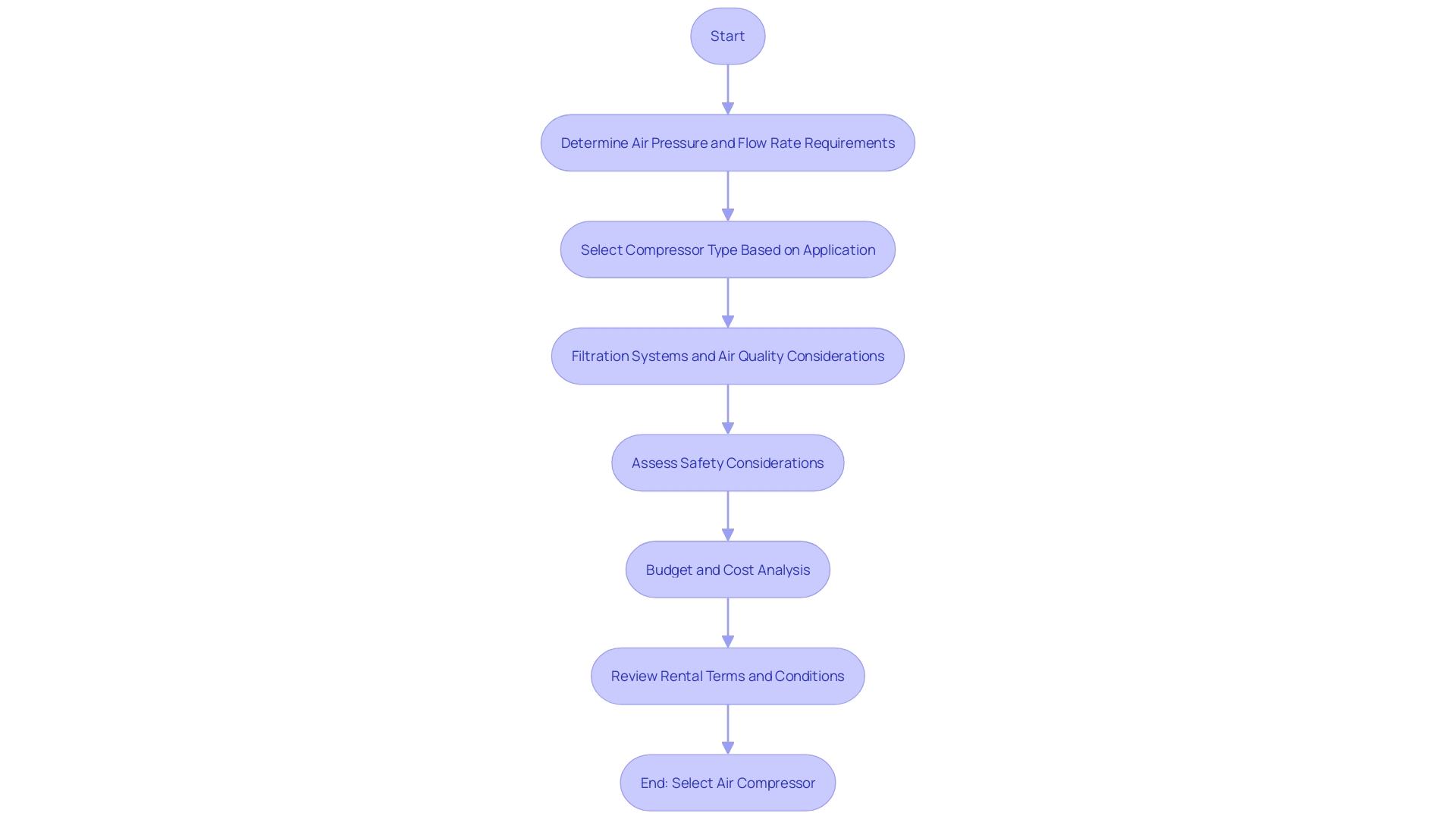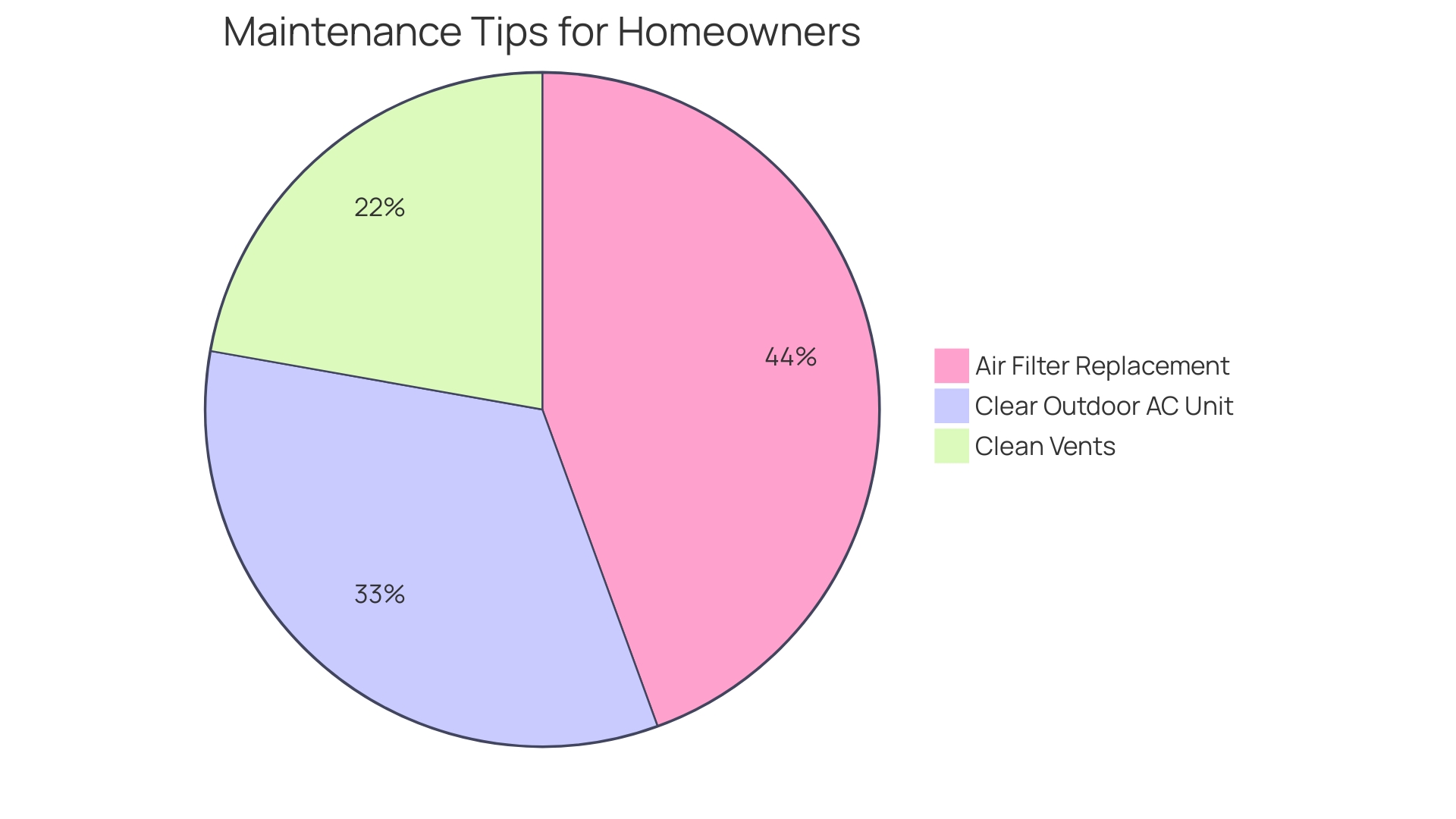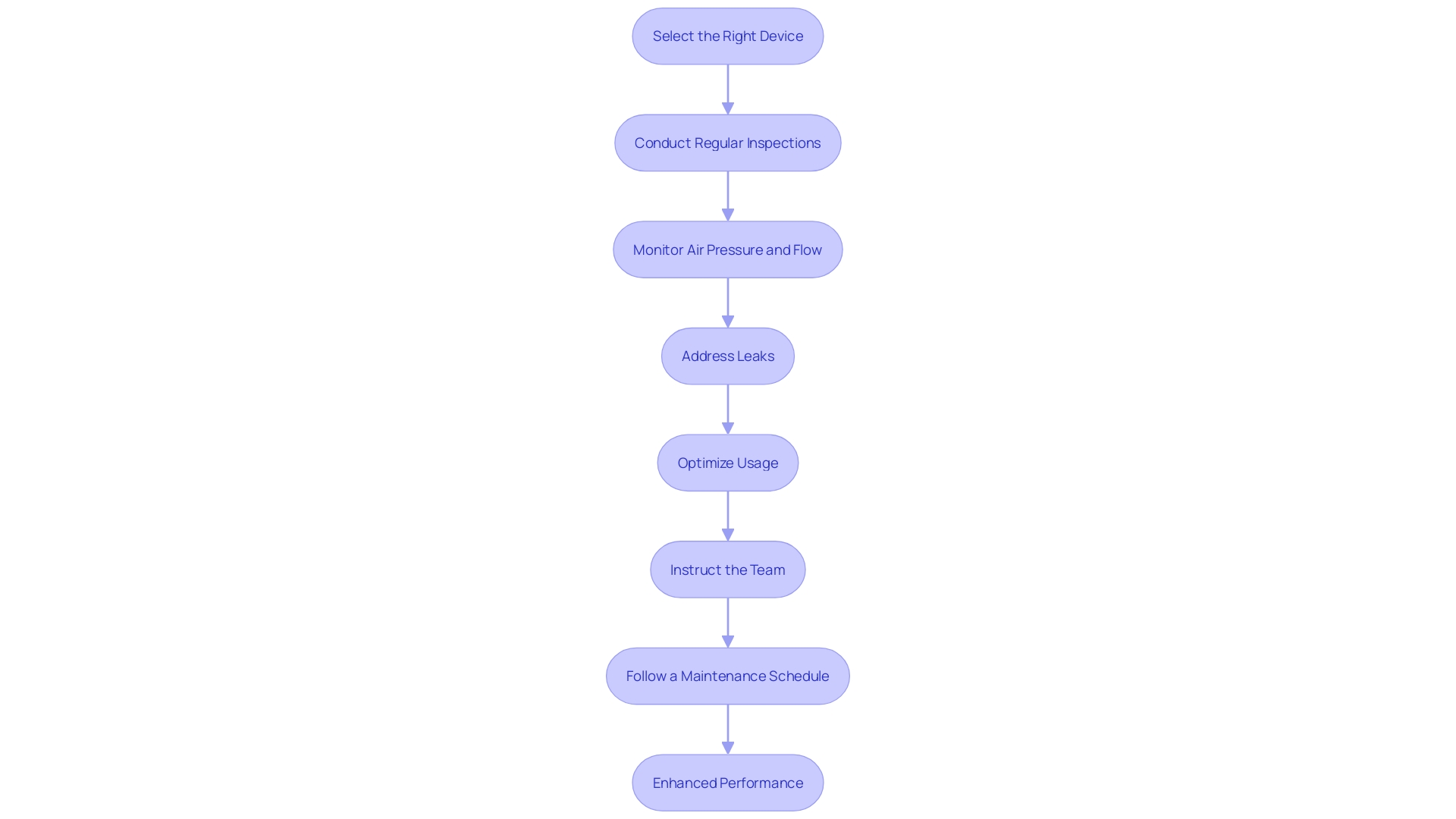Introduction
Renting air compressors can be a game-changer for construction projects, providing the power and flexibility needed without the large upfront investment of purchasing equipment. With a wide variety of models available, project managers can select the ideal air compressor that aligns with their specific job demands, ensuring optimal performance and cost-efficiency. Renting not only offers a practical solution for short-term needs but also alleviates the worry of long-term maintenance.
Rental companies take on the responsibility of upkeep, providing well-maintained and high-performing equipment ready for immediate use. This service minimizes potential downtime and helps projects stay on track, especially critical in the construction industry where timelines are often tight. Moreover, rental companies frequently update their fleets to include the latest technology, which means clients can access modern air compressors that may otherwise be out of reach due to high purchase costs.
Discover the benefits of renting air compressors and how it can contribute to the efficiency of your projects.
Benefits of Renting Air Compressors for Efficiency
Selecting the appropriate rental for air compression can significantly impact construction endeavors, offering the necessary power and adaptability without the substantial initial expenditure of acquiring equipment. With the extensive range of options available, including towable and diesel choices, managers can choose the perfect air equipment that matches their specific work requirements, guaranteeing excellent performance and cost-effectiveness.
Renting air machines not only provides a practical solution for short-term needs but also alleviates the worry of long-term maintenance. Rental companies take on the responsibility of upkeep, providing well-maintained and high-performing equipment ready for immediate use. This service minimizes potential downtime and helps projects stay on track, especially critical in the construction industry where timelines are often tight.
Additionally, rental companies regularly enhance their vehicle inventory to incorporate the most recent advancements, allowing customers to utilize contemporary air compression devices that might otherwise be unattainable due to expensive buying prices. These state-of-the-art models often come with energy-saving features, which is crucial considering that, according to the U.S. Department of Energy, optimizing compressed air systems can lead to 20% to 50% improvements in energy efficiency. For example, leaks in compressed air systems can waste 20% to 30% of a machine that compresses air's output, but with rented equipment, such issues are typically addressed by the provider, resulting in better energy conservation and cost savings.
The flexibility of renting is also highlighted in the variety of industries that require clean, dry compressed air. From food and beverage to pharmaceuticals, the appropriate air equipment guarantees compliance with industry standards and safeguards product integrity. For these sectors, leasing the suitable oil-free machines can be a more feasible choice than buying, considering the high initial capital cost and the long-term savings from reduced risk of contamination and lower servicing needs.
In summary, rentals of air compressors provide a strategic benefit for managing costs and effectiveness. By leveraging the expertise and inventory of rental companies, construction managers can prioritize meeting their deadlines and quality standards, while leaving the complexities of air compressor maintenance, upgrades, and energy optimization to the specialists.
Key Considerations for Selecting the Right Air Compressor
When selecting an air compressor for your project, the following considerations are vital for peak performance and efficiency:
-
Air Pressure and Flow Rate Requirements: It's essential to assess the air pressure and flow rate that your project demands. This evaluation will help identify the essential capacity and power requirements for the air machine.
-
Distinct Application Requirements and Flexibility: Every undertaking has particular demands, so take into account what duties the air device will be employed for. Evaluate the need for features such as portability, noise levels, and compatibility with particular tools or machinery.
-
Filtration Systems and Air Quality: High-quality compressed air may be crucial for your task, necessitating an air machine with superior filtration systems. The quality of air can significantly impact the outcome of your work.
-
Safety Considerations: Safety should never be compromised. Choose air machines that include safety features such as pressure relief valves, automatic shut-off mechanisms, and proper grounding. Compliance with safety standards and regulations is non-negotiable.
-
Budget and Cost Analysis: Your financial plan is critical in determining whether to lease or buy an air device. Consider the project's duration, potential upkeep expenses, and the advantages of owning the equipment in the long run.
-
Rental Terms and Conditions: If renting is the chosen route, scrutinize the rental agreement. Essential aspects to consider include the rental period, delivery and pickup particulars, rates, and any extra fees.
Keep in mind, devices that generate pressurized air are prone to deterioration and reduced effectiveness like air leakage can result in substantial energy loss—frequently ranging from 20% to 30% of the overall consumption of compressed air. Regular maintenance and vigilant safety checks are imperative, as even a disconnected unit can harbor hidden electrical dangers. By considering these points, you ensure you choose an air machine that not only fulfills your project's requirements but also operates safely and cost-effectively.

Importance of Maintenance and Support
Ensuring your rented air machines are properly maintained is pivotal for peak performance and extended lifespan. Here's a deeper dive into why you should prioritize maintenance and support:
-
Equipment Performance: Routine maintenance is the backbone of optimal air compressor function. By regularly scheduling inspections, lubrication, and swapping out filters, you can avert potential breakdowns and lessen downtime. Statistics indicate that leakage, a prevalent issue in compressed air systems, can account for 20-30% of total consumption, which underscores the importance of consistent maintenance to maintain efficiency.
-
Energy Efficiency: An air compressor in top condition is synonymous with energy savings and a smaller carbon footprint. Maintaining your equipment helps pinpoint and rectify inefficiencies or leaks, which are known to cause excessive energy use. In fact, leaks in compressed air systems can be so significant that they may account for half the inefficiency in a typical setup.
-
Safety: Regular maintenance is essential for the safety of your construction endeavor and team members. Through consistent inspections and repairs, potential hazards can be identified and mitigated, thereby diminishing the risk of accidents or equipment failure.
-
Support Services: Leverage the support services offered by your rental company. They are equipped to help with troubleshooting, repairs, and replacements, ensuring issues are resolved swiftly and effectively. As noted by Atlas Copco Rental, a reliable partner can provide efficient solutions on demand, keeping your project on track even during emergencies.
-
Compliance with Regulations: Adherence to safety and environmental standards is another compelling reason for routine maintenance. Regular checks ensure that your air machine remains compliant, an essential consideration in industries with stringent regulations.

Optimizing Air Compressor Efficiency
Enhancing the performance of an air rental involves more than just turning it on and off. A proactive stance on maintenance and operation can save significant energy and costs, which is crucial in the backdrop of statistics revealing that leakage in compressed air systems can account for 20% to 30% of total consumption, leading to substantial energy waste. Start by ensuring you select a device that matches your project's requirements. An incorrectly sized machine not only leads to inefficiency but can also increase wear and tear.
Conduct regular inspections to identify wear or damage, and keep filters and cooling systems clean to sustain peak performance. Monitoring air pressure and flow is essential; keep these within the optimal range for your applications, adjusting settings as necessary to enhance efficiency.
Leaks are a common but often overlooked issue; addressing them promptly will curtail energy losses. As per the U.S. Department of Energy, optimizing compressed air systems can improve energy efficiency by 20% to 50%, underscoring the importance of dealing with leaks and pressure drops.
To fully utilize your machine, avoid idle time and unnecessary operation. Planning tasks and equipment usage can significantly boost productivity and efficiency. Furthermore, instructing your team on correct operation and care will assist in promptly dealing with any problems, adding to the overall effective utilization of the air device.
Finally, a regular maintenance schedule, as recommended by the rental company or manufacturer, is vital. This routine adherence prevents unexpected breakdowns and prolongs the life of the compressor. As we've learned from industry seminars and experts like those from the Compressed Air Challenge, understanding and implementing these measures can lead to significant savings and more reliable operation of compressed air systems.

Conclusion
Renting air compressors offers a strategic advantage for construction projects, providing the power and flexibility needed without the large upfront investment. With a wide variety of models available, project managers can select the ideal air compressor that aligns with their specific job demands, ensuring optimal performance and cost-efficiency.
Renting not only offers a practical solution for short-term needs but also alleviates the worry of long-term maintenance. Rental companies take on the responsibility of upkeep, providing well-maintained and high-performing equipment ready for immediate use. This minimizes downtime and helps projects stay on track.
Moreover, rental companies frequently update their fleets with the latest technology, making modern air compressors accessible without the high purchase costs. These models often come with energy-saving features, resulting in better energy conservation and cost savings. Optimizing compressed air systems can lead to significant improvements in energy efficiency.
Renting air compressors also offers flexibility in meeting industry standards and protecting product integrity. Industries like food and beverage and pharmaceuticals require clean, dry compressed air, and renting the appropriate oil-free compressors can be a more viable option than purchasing. This reduces the risk of contamination and lowers servicing needs, contributing to long-term cost savings.
In conclusion, renting air compressors empowers construction projects with power, flexibility, and cost-efficiency. It allows project managers to access the latest technology, optimize energy efficiency, and meet industry standards. By prioritizing maintenance and partnering with rental companies, construction projects can stay on track, minimize downtime, and achieve success.




